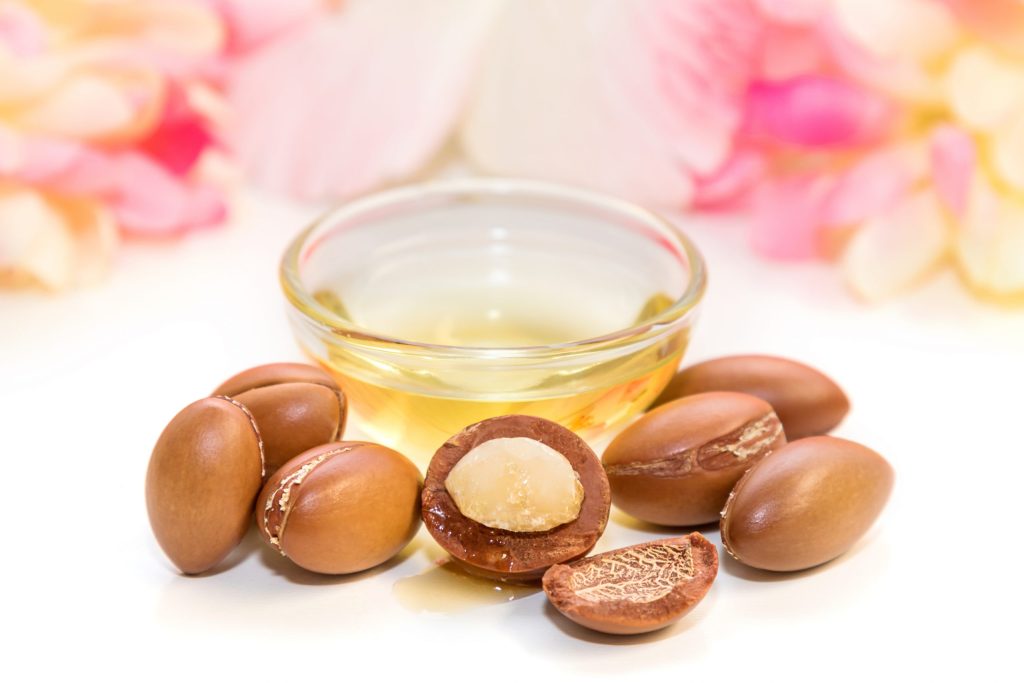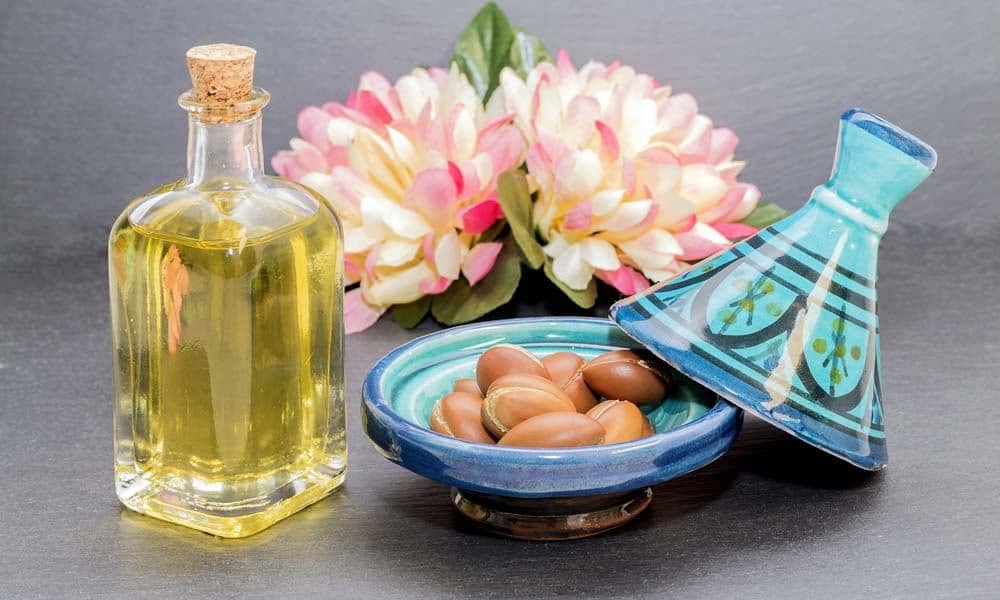Argan oil, often referred to as “liquid gold,” is extracted from the nuts of the Argan tree (Argania spinosa), native to Morocco. It is renowned for its nutritional, cosmetic, and therapeutic properties, and has been used for centuries in both culinary practices and skincare.
In this article, we will explore the benefits of argan oil for both internal and external use.
Nutritional composition of argan oil
Argan oil is rich in:
- Essential fatty acids: Omega-6 and omega-9, which are beneficial for heart and skin health.
- Vitamin E: A powerful antioxidant that protects cells from oxidative stress.
- Polyphenols: Anti-inflammatory and antioxidant compounds.
- Plant sterols: Help reduce cholesterol levels and support skin health.
Internal benefits of argan oil
- Supports cardiovascular health: Due to its high content of unsaturated fatty acids, argan oil can help reduce bad cholesterol (LDL) and increase good cholesterol (HDL), lowering the risk of cardiovascular diseases.
- Regulates blood sugar levels: Moderate consumption of argan oil can improve insulin sensitivity, making it beneficial for people with type 2 diabetes.
- Beneficial for the digestive system: Argan oil stimulates digestion, reducing inflammation in the digestive tract and contributing to better nutrient absorption.
- Antioxidant and anti-inflammatory properties: The polyphenols and vitamin E in argan oil help reduce inflammation and protect cells from the damaging effects of free radicals, thus preventing premature aging and chronic diseases.
- Supports liverhealth: Argan oil protects the liver from toxin-induced damage and aids in its regeneration.
External benefits of argan oil
- Moisturizes and nourishes the skin: Argan oil is an excellent natural moisturizer suitable for all skin types. It keeps the skin soft, smooth, and prevents dryness.
- Reduces signs of aging: The antioxidants in argan oil stimulate collagen production, reducing wrinkles and fine lines.
- Hair treatment: Argan oil nourishes the scalp and hair, preventing split ends while adding shine and elasticity. It is also an effective remedy for dandruff and dry scalp.
- Heals and soothes irritated skin: With its anti-inflammatory properties, argan oil is useful in treating eczema, psoriasis, and other skin conditions.
- Strengthens nails and cuticles: When applied to nails, argan oil makes them stronger and helps prevent breakage.
- Protection against sun damage: Used as a body oil, argan oil protects the skin from the harmful effects of UV rays.
How to use argan oil
For internal use:
- Use it as a salad dressing or drizzle it over steamed vegetables.
- Consume 1-2 teaspoons per day for cardiovascular and antioxidant benefits.
For external use:
- For skin: Apply a few drops of oil to your face or body after a shower for deep hydration.
- For hair: Warm a small amount of oil between your palms and apply it to the ends or scalp. Let it sit for 30 minutes before washing.
- For nails: Massage the oil onto nails and cuticles before bed.
Contraindications of argan oil
Although generally safe, there are a few situations where caution should be exercised:
- Allergies Individuals allergic to nuts or seeds may have allergic reactions to argan oil. It is recommended to perform a patch test before use.
- Overuse for internal consumption Excessive consumption may cause digestive issues such as nausea or diarrhea. It’s important not to exceed the recommended daily intake.
- Counterfeit products Ensure that you purchase pure, high-quality argan oil to avoid diluted products or those with added chemicals.

Argan oil is a true elixir for health and beauty, being a valuable ally for both internal and external use. Whether used to nourish your skin and hair or to support heart health, this natural oil deserves a place in your daily routine.
How do you use argan oil? 💛✨

